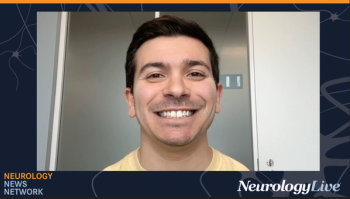
Cognitive Enhancers Generally Make No Clinically Important Difference in AD
Findings from a new meta-analysis suggest these medications may be most effective in improving cognition in Alzheimer disease.
Findings from a new meta-analysis suggest that donepezil plus memantine may be most effective in improving cognition in Alzheimer disease (AD), followed by donepezil and galantamine. However, the study also found that cognitive enhancers in general had minimal clinical impact in AD. Only donepezil met minimal criteria for clinical improvement in cognition, and only galantamine did so for global assessment. The results of the
“Clinicians and patients need to consider whether the differences in outcomes are clinically important . . . [C]linicians need to reflect on how the MCID [minimal clinically important difference] might change with disease severity, as this has also been postulated,” wrote Sharon Straus, MD (University of Toronto, Ontario, Canada), and colleagues.
Two major targets of AD medications include the cholinergic system and glutamate receptors involved in cognition. Cholinesterase inhibitors such as donepezil, galantamine, and rivastigmine target the former, while glutamate receptor blockers such as memantine target the latter.
Three Cochrane Reviews have found that galantamine, donepezil, and rivastigmine improved cognition in AD.2-4 However, those studies were published more than 10 years ago and could not compare individual drugs. The current review includes 111 studies and 22,117 participants not included in past reviews.
The researchers performed an exhaustive literature review by searching five databases for studies published in any language from inception to March 2016. Included studies evaluated individuals with AD and compared any combination of donepezil, rivastigmine, galantamine or memantine with each other or with control (no treatment, placebo, best supportive care). The analysis included 142 studies (110 RCTs, 21 non-RCTs, 11 cohort studies) published between 1996 and 2015. Data from unpublished studies (identified from conferences, clinical trial registries and author contact), were also included. Researchers also looked at whether treatment with these drugs produced a minimal clinically important difference (MCID).
Compared with placebo, better cognition scores were seen with the following drugs: donepezil: mean difference (MD) 1.39, donepezil plus memantine: MD 2.59, transdermal rivastigmine: MD 2.02, MCID 3.50- to 3.95-point increase (Mini-Mental State Exam); donepezil: MD = -3.29, galantamine: MD = -2.13, MCID 3.1- to 3.8-point decrease (AD assessment-cognitive subscale). None of the drugs were superior to placebo for function. The results for behavior were donepezil + memantine: MD = -5.23, MCID is 8-point reduction; for global status: donepezil: MD = -0.32, donepezil plus memantine: MD = -0.57; oral rivastigmine: MD = -0.38; galantamine: MD = -3.79, MCID 1-point reduction. The only drug that was superior to placebo in terms of mortality was galantamine (OR = 0.56, 95% CrI = 0.36–0.87).
For safety outcomes, placebo was safest followed by memantine. Oral rivastigmine likely caused the most harm. And, while donepezil plus memantine was ranked most effective, it was least safe for headache. The following drugs were associated with GI adverse events: oral rivastigmine, galantamine, donepezil.
Most of the studies were of short duration and quality of life, dosage, admission to long term care, or cognitive enhancers in mixed types of dementia could be evaluated. Moreover, the participants of the RCTs may have been healthier than non-participants, which may have biased the results.
Take Home Points
• This large meta-analysis and review found that donepezil plus memantine may be most effective in improving cognition in AD, but is not the safest combination and may be least safe for headache
• Cognitive enhancers in general had minimal clinical impact in AD; only donepezil met criteria for minimal clinical improvement in cognition, and only galantamine did so for global assessment
• Clinicians and patients need to decide whether these differences in outcomes make a clinically important difference in their care
References:
1. Tricco AC, Ashoor HM, Soobiah C, et al. Comparative effectiveness and safety of cognitive enhancers for treating Alzheimer disease: systematic review and network meta-analysis. J Am Geriatr Soc. September 2017.
2. Loy C, Schneider L. Galantamine for Alzheimer disease and mild cognitive impairment. Cochrane Database Syst Rev. 2006 Jan 25;(1):CD001747.
3. Birks J, Harvey RJ. Donepezil for dementia due to Alzheimer disease. Cochrane Database Syst Rev. 2006 Jan 25;(1):CD001190.
4. Birks J, Grimley Evans J, Iakovidou V, et al. Rivastigmine for Alzheimer disease. Cochrane Database Syst Rev. 2009 Apr 15;(2):CD001191.
Newsletter
Keep your finger on the pulse of neurology—subscribe to NeurologyLive for expert interviews, new data, and breakthrough treatment updates.










